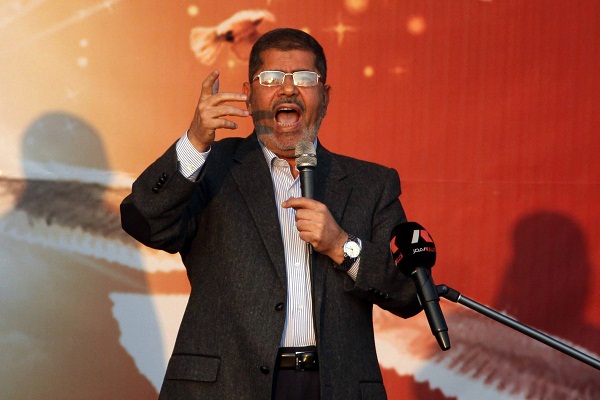CAIRO: The Egyptian Museum houses some of the world’s prized antiquities, including the gold mask of King Tut that draws millions of tourists a year. But it also has an outdated video surveillance system that doesn’t work around the clock and guards who snooze, read the Quran or are seemingly too bored to pay attention.
Security for Egypt’s treasures is under scrutiny after the Aug. 21 theft of a van Gogh painting from another museum in Cairo revealed some alarming gaps, and the minister of culture told a newspaper he lies awake at night, fearing for the safety of the country’s relics.
Shortly after van Gogh’s 1887 "Poppy Flowers" was stolen from the Mahmoud Khalil Museum, officials discovered that no alarms were working, and only seven of 43 cameras were operating.
That made it very easy for whoever took the painting, said Ton Cremers, director of the Netherlands-based Museum Security Network, which keeps tabs on the protection of art around the world.
"The value of the van Gogh is $40 (million) to $50 million," Cremers told The Associated Press. "A complete security system of that museum would be $50,000, and to keep it running would cost $3,000 a year. … Need I say more?"
With the alarms out and few cameras working, the thieves took advantage of the afternoon period when security guards were busy praying during the Muslim holy month of Ramadan.
The thieves used a box cutter to slice the 12-inch-by-12-inch (30-centimer-by-30-centimeter) canvas from its frame and left the museum undetected.
Now, officials in Egypt’s culture ministry are under fire.
On Monday, the head of the ministry’s fine arts department, Mohsen Shalaan, was arrested for negligence. Shalaan, who was in charge of the Mahmoud Khalil Museum, and a number of other museum heads had asked Culture Minister Farouk Hosni for nearly $7 million to upgrade their security systems, but only $88,000 was approved.
Two days later, Hosni ordered three museums closed because security cameras weren’t functioning.
The independent newspaper Al-Shorouk reported the Tourism and Antiquities Police had warned Hosni of lax security at the Mahmoud Khalil Museum, and that 16 of the country’s nearly 50 museums have no alarms, cameras or appropriate fire safety systems.
Each year, nearly 9 million people visit Cairo’s museums and the haunting tombs of the Valley of the Kings in Luxor, and these tourists are a vital source of revenue.
Still, on a hot Tuesday afternoon at the height of the tourist season, inattentive security was easy to spot at the Egyptian Museum.
A tourism police officer guarding the entrance leaned back in his chair intently reading the Quran, the Muslim holy book, as his subordinates tried to handle the hundreds of visitors filing in.
Inside, a guard talked on his cell phone as he leaned against a stone statue of an ancient Egyptian. He ignored a Russian couple touching the carvings on a huge black sarcophagus in the middle of the room.
Another guard dozed while sitting on the edge of a railing, his head jerking to the side. He snapped to attention only when a tourist asked directions.
Elsewhere in the humid building, museum security director Abdel-Raouf Adly hurried past granite tombs, ancient tablets and hundreds of tourists, giving orders into his walkie-talkie and shaking hands with workers.
"I checked all my cameras and equipment as soon as I heard about the theft at Mahmoud Khalil," Adly said, adding that his museum has laser sensors and at least 200 cameras, many of them hidden.
In an air-conditioned control room, three men at computer keyboards watched about 15 screens that displayed views of the hallways. The equipment was dated and the screens were of different models. Under a table, the cover had been removed from a computer to keep it from overheating. The keyboards were gritty from years of use.
Control room workers said that if a security guard "senses" that an incident is about to happen, he presses the record button on a VCR.
An Egyptian Museum guard who spoke on condition of anonymity because he feared for his job said much of the security relied not on computers but on humans, who had to constantly pay attention.
"A controller may be very alert for two or three hours of the shift, but then he’ll slip," he said.
Asked what would happen if a worker missed something or believed that a room wasn’t worth monitoring, the security guard shrugged and said: "It doesn’t get recorded."
He also said the equipment wasn’t able to record 24 hours a day.
"In Egypt, we say, ‘It’s OK; God will take care of it.’ Then we do nothing," he added.
Since the van Gogh theft, the Culture Ministry announced the creation of a central control room in Cairo to collect information from all museum security rooms.
Egyptian antiquities chief Zahi Hawass sought to calm fears about more thefts from sites under his control, telling the AP: "I am assuring everyone that all of my 23 museums are well-protected and have good security systems."
But on Thursday, he shut down the Nubian Museum in Aswan, 685 km south of Cairo, because its security system wasn’t working, the Shorouk newspaper reported.
Hosni even complained that he was overwhelmed by "incompetent employees."
"I’m tired, I can’t sleep," the culture minister told the Al-Masry Al-Youm daily. "I wake up in the middle of the night fearing for the artifacts and the museums."
Derek Fincham, academic director of the Association for Research into Crimes Against Art, said the best protection is "an active, engaged security guard who isn’t dozing off."
"It’s not an exciting job, but you need to take it seriously," Fincham said.
